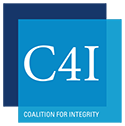Overseas Procurement

Transparency International-USA’s (TI-USA) interest in preventing procurement corruption in developing countries is motivated by the fact that procurement corruption undermines these nations’ economic development by diverting public monies from projects aimed at improving people’s lives. Whether building schools or health clinics or purchasing textbooks or medicines, governments often use public procurements in order to contract for the public works, goods, and services upon which people depend.
Unfortunately, the public procurement process is particularly vulnerable to corruption. The OECD has estimated that up to 25% of the total worldwide procurement budget is lost to corruption. Developing countries may be especially vulnerable to procurement corruption due to the fact that many of them lack rigorous controls and oversight of the procurement process.
We believe that civil society procurement monitoring is an innovative solution to preventing procurement corruption, particularly in developing countries that lack rigorous oversight mechanisms. Together with a team of international procurement experts, TI-USA developed an online tool, the Civil Society Procurement Monitoring Tool that seeks to harness people’s natural interest in the procurements that affect their community and assist them in monitoring these procurements for signs of corruption and fraud. The Tool takes the form of an interactive checklist. This checklist facilitates the detection of common red flags of corruption, fraud, and lack of transparency in public procurement; suggests actions to take when irregularities are found; and enables the user to generate a summary report detailing all red flags uncovered. The checklist is composed of over 60 questions that proceed chronologically and cover the entire life of a public procurement, from the initial needs definition process through the final audit of the completed contract. These questions reflect international best practices in procurement. Each time the user uncovers a red flag, the Tool suggests additional avenues for investigation as well as possible avenues of recourse.
Our Civil Society Procurement Monitoring Tool has already been tested in the Philippines and in Indonesia and is currently being used by our partner organization Transparency International-Rwanda to monitor infrastructure procurements in four districts. Check back to this page for updates on our work in Rwanda.

